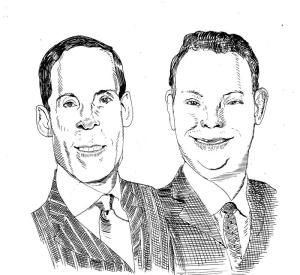 The Commercial Observer: So, how did PBS Real Estate fare this year?
The Commercial Observer: So, how did PBS Real Estate fare this year?
Robert Emden: The year-to-date has been one of our more interesting years as an industry. I don’t think we’ve experienced the downturn we had expected, and we’re seeing things coming alive in the last couple of months. There’s a tremendous amount of activity out there because tenants perceive there’s a bottom-or at least that we’re trying to hit bottom. There’s a lot of interest, there’s a lot of inked transactions that we’re very much a part of, and the flight to quality has arrived.
Has there been a snowball effect?
Robert Emden: Absolutely. Don’t we all feel that if you’re on the boat, I want to go on the boat, too? We’re all a bit like sheep that way. Not to say we aren’t individuals.
Robert, you’ve worked in the real estate industry since 1972. Is there a time since you began that most reminds you of the current recession?
Robert Emden: The very year I came into the marketplace. I graduated in 1971, and for six months I was in residential and I saw that I didn’t like that. … I will tell you that we were in that downturn for three to four years. I remember it vividly.
Tell me about some of the most recent transactions you’ve been involved with, especially the deal you shepherded for Russell Investments in September.
Robert Emden: We were involved with some pretty exciting lease signings, one most recently for Russell Investments, which you had asked about. We represented their 30,000-foot relocation to the Bryant Park area. They took advantage of value and location and a different work environment and image.
What else?
Robert Emden: We just signed a sublease at 9 West 57th Street for about 21,000 feet with a hedge fund by the name of Coatue. We’re also poised to sign an important tenant in the financial services industry. We’re going to be signing a nice-size transaction in one of the Times Square buildings [this week].
David Emden: Don’t forget the Lever House deal.
Robert Emden: Oh, right. We just did a full floor at Lever, the 17th floor. It was for Sanders Capital. We did that, and that’s about six weeks old, I guess. And we’ve done numerous smaller ones. Our sweet spot is the financial services industry.
You mentioned the hedge fund transaction. Are you seeing them spring back to life?
Robert Emden: What they’re doing today is buying flight to quality, but not necessarily the A plus-plus buildings because of image, and the fee structures are different. They want this area near Grand Central, and the area has expanded to Bryant Park because they’re really hesitant to be a little too shouty. In general, that’s what I find. Image is very, very important for them now-keeping a low-key image.
David Emden: Specifically, for hedge funds, two, three or four years ago it was, ‘I want the best. I’m going to spend $400 a square foot, I’m going to build out gorgeous space. It’s what I’m used to, it’s what I live in, it’s what I want when I come to the office, and it’s what my clients want when they come to my office.’ Now there’s a real pause and a real sensitivity. Still very nice offices, but they just don’t want to shout. No one wants their investors to think they’re spending too much money on their office space. The last few years it got lost, and people are more focused on that now.
Are there real estate firms that you consider to be direct competitors?
Stephen Gordon: There’s a large universe of brokers, but there’s a much smaller universe of really qualified competitors that we respect, and probably even a smaller universe that trades in the same space as we do. There’s a lot of mutual admiration, but we fight to win.



